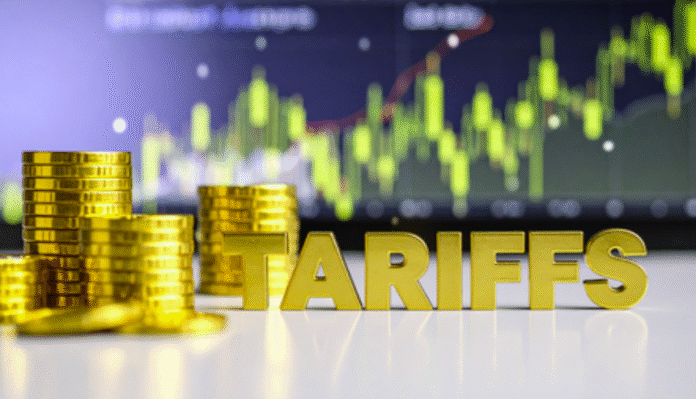New Delhi– Corporate leaders in India are optimistic that New Delhi and Washington will reach a negotiated settlement on tariffs, according to a report released Wednesday.
Industry executives affected by the U.S. administration’s decision to impose higher tariffs said they expect the final rate on U.S. imports from India to be lower than the announced 50%, as long as the two countries use the 21-day “off-ramp” window to strike a deal.
At an event hosted by Emkay Financial Services, business leaders noted that companies most exposed to the U.S. market are exploring contingency plans — including relocating production to other countries — though such moves would take time to implement.
Despite near-term trade concerns, participants reaffirmed confidence in India’s long-term growth prospects. Dixon Technologies outlined its strategy to move up the value chain and sustain growth momentum. Adil Zainulbhai, Chairman of the Capacity Building Commission, shared how the CBC’s initiatives are enhancing efficiency in government operations and public sector undertakings.
Speakers acknowledged that if tariffs remain at 50%, asset quality could come under strain — particularly for textile exporters and small- to medium-sized enterprises (MSMEs). They expressed hope the government would step in with targeted relief measures, such as a possible credit guarantee scheme, to help offset the impact.
Beyond trade disputes, sentiment toward India’s domestic market remains upbeat. Management teams across sectors — from consumer staples to discretionary goods — reported early signs of a demand rebound and are preparing for a strong festive season and a solid second half of FY26.
Lenders echoed this outlook, projecting robust retail loan growth later in FY26, even as corporate lending continues to face stiff competition from the bond market.
Meanwhile, the government is continuing discussions with Washington on a Bilateral Trade Agreement (BTA) aimed at expanding trade and investment while ensuring tariff stability and long-term predictability in economic relations. (Source: IANS)













